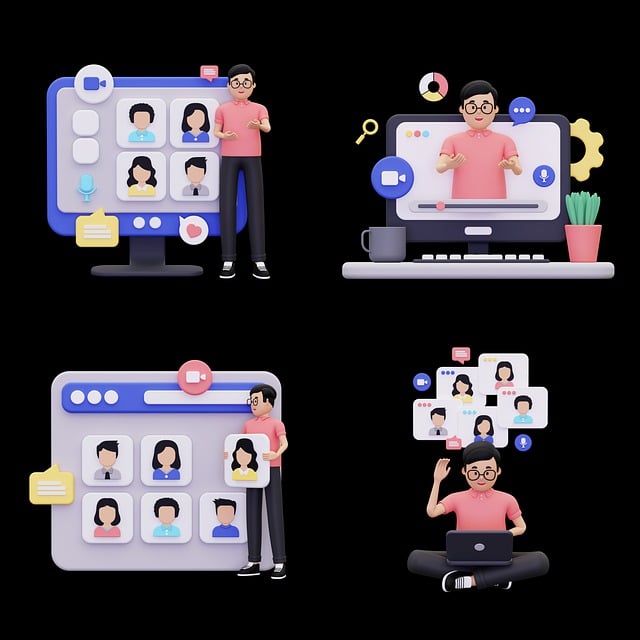Confidential Computing enhances humanitarian aid by providing secure, isolated environments for processing sensitive data in challenging terrains. This technology, akin to discreet web surfing for luxury car enthusiasts, safeguards personal information, medical records, and logistical plans over insecure networks. By leveraging advanced encryption and secure computing frameworks, it improves operational efficiency, safety, and privacy, fostering trust among aid workers. While implementation faces challenges like securing remote data transmission and storage, collaboration between technology providers and humanitarian agencies holds promise for better crisis response, data protection, and informed decision-making based on real-time information.
Confidential computing is transforming humanitarian aid, offering a robust framework for protecting sensitive data in challenging field environments. This article explores how this technology empowers aid workers by enhancing security and privacy during their crucial operations. From secure access to discreet web surfing, we delve into the benefits and potential challenges faced by organizations navigating these innovative solutions. Discover how confidential computing can revolutionise humanitarian efforts, ensuring safety and efficiency for those on the frontlines.
- Understanding Confidential Computing: Protecting Sensitive Data in Humanitarian Aid
- The Impact on Field Operations: Secure Access for Aid Workers
- Ensuring Privacy: Discreet Web Surfing and its Benefits
- Overcoming Challenges: Implementation and Future Prospects for Humanitarian Organizations
Understanding Confidential Computing: Protecting Sensitive Data in Humanitarian Aid

In the realm of humanitarian aid, where trust and discretion are paramount, Confidential Computing offers a revolutionary approach to data protection. It involves secure processing of sensitive information within isolated environments, ensuring that critical details remain confidential even when accessing them over insecure networks. This is particularly relevant for aid workers navigating challenging terrains or operating in regions with limited digital infrastructure. By employing advanced encryption and secure computing frameworks, aid organizations can safeguard personal data, medical records, and logistical plans from unauthorized access.
Think of it as a private sanctuary for discreet web surfing, akin to a luxury car enthusiast accessing exclusive collector’s forums without fear of prying eyes. Confidential Computing ensures that every click, download, or exchange of sensitive data is enveloped in an impenetrable veil of security, fostering a safe digital environment for humanitarian efforts across the globe.
The Impact on Field Operations: Secure Access for Aid Workers

Confidential computing offers a game-changing solution for field operations in humanitarian aid, ensuring secure access for workers amidst challenging environments. In regions where internet connectivity is unreliable or compromised, aid workers require tools that protect sensitive data during discreet web surfing sessions—a need often compared to the discretion expected of luxury car enthusiasts and collectors navigating exclusive markets. This technology enables real-time information sharing and collaboration without exposing critical operations to potential threats, enhancing overall efficiency and safety.
By implementing confidential computing, humanitarian organizations can facilitate secure communication, data analysis, and decision-making processes, all while maintaining the privacy and integrity of sensitive material. This is particularly crucial when aid workers need to access restricted websites or handle confidential documents remotely, ensuring they have a reliable and safe digital experience comparable to that expected in exclusive car collector communities, where discretion is paramount.
Ensuring Privacy: Discreet Web Surfing and its Benefits

In the realm of humanitarian aid, where sensitive information and the privacy of beneficiaries are paramount, discreet web surfing plays a pivotal role. This innovative approach to online navigation ensures that aid workers can access critical resources and knowledge without compromising the confidentiality of their operations or the personal data of those they serve. Just as discreet web surfing benefits luxury car enthusiasts and collectors by shielding their browsing activities from public view, it offers humanitarian professionals a similar layer of protection in their digital interactions.
By employing secure and encrypted connections, aid workers can explore the internet freely, gaining access to valuable insights and tools that enhance their ability to deliver effective assistance. This technology safeguards against potential breaches, ensuring that confidential conversations, strategic plans, and personal details remain private. Discreet web surfing is a game-changer, enabling humanitarian aid workers to navigate the digital landscape with peace of mind, ultimately fostering a culture of trust and security in their vital mission.
Overcoming Challenges: Implementation and Future Prospects for Humanitarian Organizations

Implementing confidential computing in humanitarian aid presents unique challenges. Organizations must ensure secure data transmission and storage while operating in remote, often conflict-ridden regions with limited infrastructure. Existing privacy-focused technologies may not be readily accessible or adaptable to the specific needs of aid workers, who require efficient and reliable tools for discreet web surfing. Customization is key; solutions should cater to the diverse digital requirements of humanitarian operations, from emergency communication to access to critical resources.
Looking ahead, the future prospects for confidential computing in this sector are promising. With continued development and collaboration between technology providers and humanitarian agencies, these challenges can be overcome. This could lead to more secure and efficient aid delivery, better protection of sensitive data, and improved decision-making capabilities based on real-time information. Ultimately, integrating confidential computing into the humanitarian landscape may facilitate a smoother, safer, and more effective response to global crises, mirroring the discreet nature of web surfing enjoyed by luxury car enthusiasts and collectors in their secure digital spaces.
Confidential computing offers a transformative solution for humanitarian aid workers, ensuring sensitive data protection while enhancing operational efficiency. By implementing secure access methods and enabling discreet web surfing, aid organizations can improve field operations and better serve affected populations. While challenges exist, ongoing innovation and collaboration will pave the way for wider adoption, ultimately benefiting both aid workers and those they assist. This approach, inspired in part by principles behind Discreet Web Surfing for Luxury Car Enthusiasts and Collectors, exemplifies how technology can foster a more secure and effective humanitarian response.
